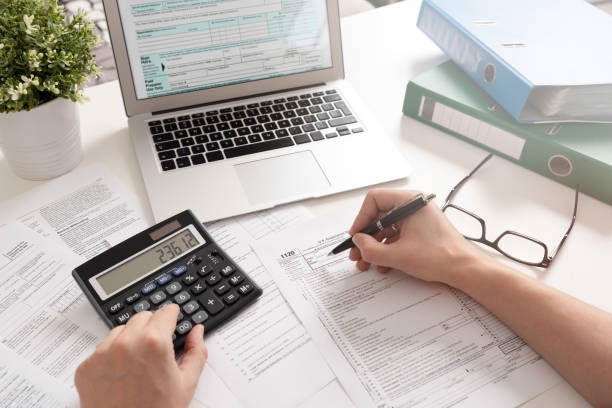Quick search
CTRL+K
Quick search
CTRL+K


Since 2010, the Global Law Experts annual awards have been celebrating excellence, innovation and performance across the legal communities from around the world.
posted 3 years ago
Filing your Canada Revenue Agency (CRA) T1135 or Foreign Income Verification Statement form can be easy if you know the whats and hows of it. First off, you should know that in May 2019, an update came out which allowed the electronic (NETFILE or EFILE) filing of 2017 forms up to the succeeding years.
Secondly, the due date for filing the T1135 form is the same as that of your corporate (for corporations) or personal income tax return (for individuals). So, filing of the form should be done within six months of a corporation’s fiscal period. This means that if your taxation year ends on December 30, 2020, then your T1135 form should have been filed by June 30 of this year.
To know more about the CRA T1135 form, refer to the information we have gathered below.
Anybody in Canada who owns foreign property with a value of more than 100,000 Canadian dollars (CAD) must file a TT113 form with CRA. You may have to pay monetary penalties if you were unable to file this form or did not completely disclose your ownership of a foreign property. You may even incur negligence charges in certain instances.
The basis for the minimum of 100,000 CAD is on a foreign property’s adjusted cost base, not its fair market value. However, if you inherited the foreign property or it was given as a gift, then its cost is its fair market value at the time you received it. Foreign properties include such assets as investments and bank accounts.
If your specified foreign property costs more than 100,000 CAD, but less than a quarter of a million, then you can report this under CRA’s simplified foreign asset reporting rules. This is in Part of the T1135 and applies to ownerships starting 2015 and later.
If your specified foreign property is worth 250,000 CAD or more, at any time within the year, then you must fill out Part B of the form. Check out the form here.
Canadian taxpayers must declare all their foreign properties on the T1135 form. These properties fall under different classifications and they are:
Aside from being worth 100,000 CAD or more, a specified foreign property also refers to assets in the following categories:
When a specified foreign property is listed as a depreciable asset, then its worth is its Undepreciated Capital Cost (UCC). In accounting, depreciation refers to an asset’s value after it’s been used for some time. Based on the Income Tax Act (ITA), motor vehicles, equipment, machinery, and buildings are assets that may be seen as depreciable property.
There are other classifications of foreign properties you must report in the T1135 form. These include Canadian companies traded on foreign stock exchanges and foreign-based corporations or trusts. The same is true for American depository receipts (ADRs) or your U.S. or other foreign shares in a Canadian brokerage account. Then, there are also foreign companies on Canadian stock exchanges.
You can visit the CRA website for a complete list of these classifications. You can also ask a tax lawyer to help you sort this out.
There are exemptions to declaring a foreign property on your T1135 form. Even if you have property located outside of Canada and worth more than 100,000CAD, you don’t have to report them. The CRA will not require you to declare all of your assets if you have been using your foreign property mainly for your personal use.
Primarily using your property or asset for personal purposes means the use of that specific asset for at least half of the time or more for non-commercial or personal purposes only.
Who Needs to File T1135 |
|
|
Resident individuals |
You need to file your form T1135 if you own a specified foreign property worth more than 100,000 and below 250,000 CAD. The due date for filing is on or before June 15 of every year. |
|
Corporations |
Just like Canadian residents, corporations need to file the form if they own foreign assets that meet the 100,000 CAD threshold. The due date for filing is no later than 6 months after the end of the fiscal year. |
|
Trusts |
The same rule that applies to corporations and individuals also applies to trusts. Trusts that are not testamentary are required to file the form on December 30 every year, plus 90 days. |
|
Certain partnerships |
If you hold specified foreign assets that cost more than 100,000 CAD, then you’d have to file the T1135 form. If you are an individual in a partnership, then you’d have to file on or before March 31. Meanwhile, partner corporations need to file no later than five months after the end of the fiscal period. |
Individuals, businesses of all sizes, organizations and even charities will face tax issues from time to time. If you happen to have one, speak with the tax experts from Taxpage today!
Pro Tip:It is always your responsibility to ensure that any T1135 form you file is accurate, even if you hired a professional accountant or other tax preparation company to do the work for you. The best practice is to review a form that has not been filled out by you before submitting it. |
You’d be strictly penalized if you fail to file your T1135 on time or if you didn’t get to file it at all. This means you will be automatically penalized even if you didn’t know that you must file the form. You will have to pay at least $25 per day for as long as 100 days. The least you have to pay as a penalty for failure to file is $100, while the maximum is $2,500. You will have to pay this even if you did not mean to fail to file the form.
If you are found to have committed gross negligence in the filing of your T1135 form, then the penalty you’d have to pay is at $500 every month for as long as 24 months. Gross negligence means failing to file the form even if you knew that you had to. This kind of failure to file appears like you knowingly failed to declare your foreign property.
If you need help in figuring out how to file your form T1135, then you can contact the tax experts from taxpage.com today. Our Toronto tax lawyers have more than 25 years of experience and they are willing to assist you with your needs. You can call 647-699-4384 for more information or fill out their contact form. You can also view their website to check the services you can avail of.
FAQs on CRA T1135 Forms |
|
Can I file T1135 electronically? |
|
|
Yes, you can file your T1135 form through EFILE or NETFILE. When you do this, you will get a confirmation number from the Canada Revenue Agency (CRA) to tell you that they got your form. You need to keep this number for your records. |
|
How do I amend a previously filed form T1135? |
|
|
Taxpayers need to use the most recent version of the T1135 form for all fiscal years. But, CRA will accept amended forms if it is filed using the same version of the form previously used. |
|
Is the Voluntary Disclosures Program available to Form T1135 filers? |
|
|
Yes, it is. The Voluntary Disclosures Program is available for filers if they meet certain conditions. If you did not disclose certain information, gave incomplete information, or were not able to file your form T1135, then the program can help you correct your tax affairs. |
Author


There are no results matching your search.
Resetposted 2 hours ago
posted 14 hours ago
posted 14 hours ago
posted 3 days ago
posted 4 days ago
posted 4 days ago
posted 4 days ago
posted 4 days ago
posted 4 days ago
posted 7 days ago
There are no results matching your search.
ResetFind the right Legal Expert for your business
Sign up for the latest legal briefings and news within Global Law Experts’ community, as well as a whole host of features, editorial and conference updates direct to your email inbox.
Naturally you can unsubscribe at any time.
Global Law Experts is dedicated to providing exceptional legal services to clients around the world. With a vast network of highly skilled and experienced lawyers, we are committed to delivering innovative and tailored solutions to meet the diverse needs of our clients in various jurisdictions.